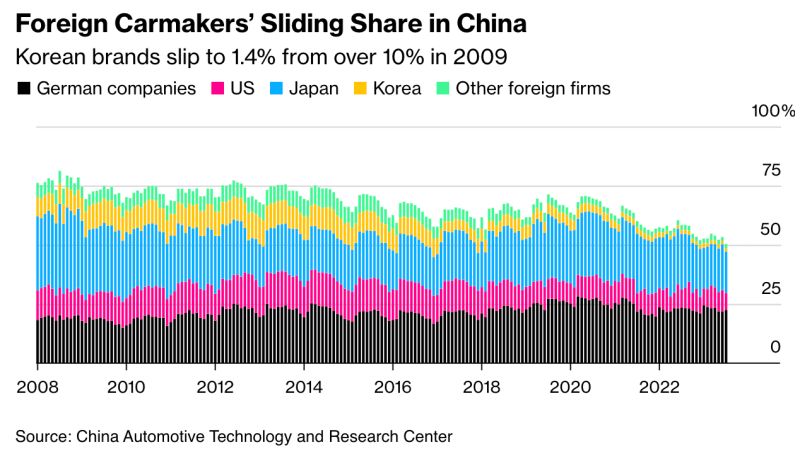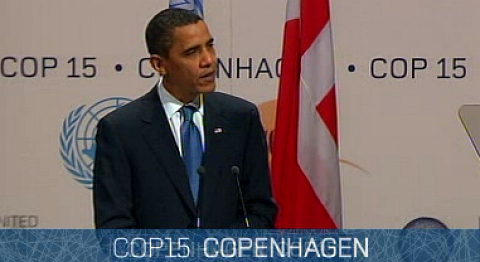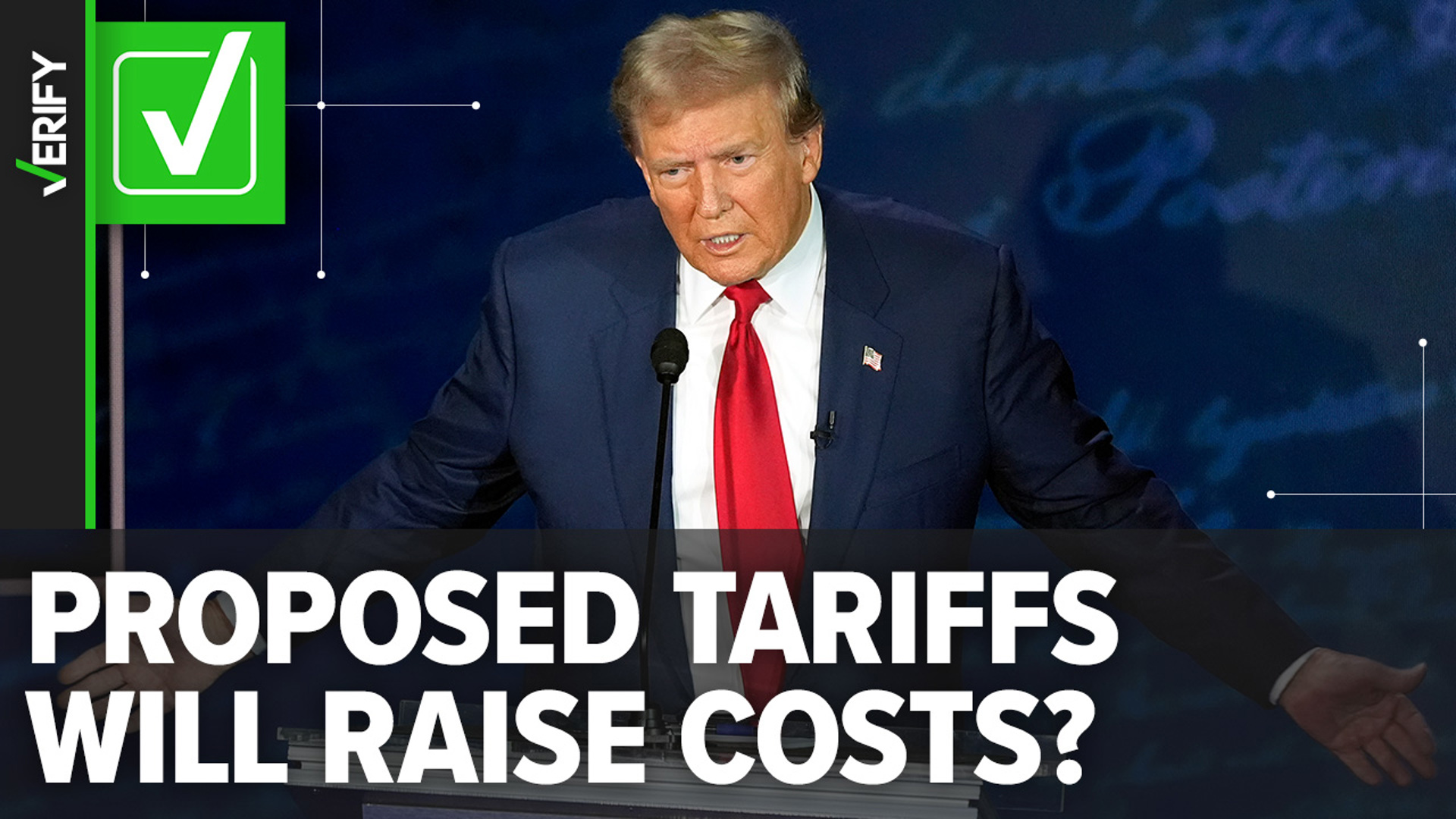Luxury Car Brands Face Headwinds In China: Case Studies Of BMW And Porsche

Table of Contents
The Economic Slowdown and its Impact on Luxury Car Sales in China
China's economic growth, once a relentless engine of luxury car sales, has experienced a noticeable slowdown in recent years. This deceleration has directly impacted high-value purchases like luxury vehicles. The reduced economic momentum translates to diminished consumer confidence and a decreased willingness to spend on discretionary items. Data from the China Association of Automobile Manufacturers (CAAM) reveals a consistent decline in luxury car sales over the past few years, highlighting the severity of this challenge. Furthermore, government regulations and policies aimed at controlling economic exuberance and promoting sustainable growth have further influenced the automotive sector.
- Reduced consumer confidence: Leading to delayed purchases and a wait-and-see approach among potential buyers.
- Impact of rising interest rates: Making financing options for luxury cars less attractive and increasing the overall cost of ownership.
- Decreased disposable income: Among high-net-worth individuals, leading to a tightening of budgets and a more discerning approach to luxury spending.
Shifting Consumer Preferences: From Status Symbols to Value and Experience
The Chinese luxury car market is no longer solely driven by the desire for status symbols. A new generation of affluent consumers prioritizes factors beyond brand prestige, placing increasing emphasis on technology, sustainability, and personalized experiences. This shift is forcing luxury brands to rethink their strategies and offerings. The emergence of strong domestic Chinese luxury brands further intensifies the competition and necessitates a deeper understanding of evolving consumer desires.
- Growing demand for electric vehicles (EVs) and hybrid models: Reflecting a heightened awareness of environmental concerns and government incentives promoting cleaner vehicles.
- Focus on personalized customization and after-sales services: Consumers are seeking unique experiences tailored to their individual needs and preferences, extending beyond the initial purchase.
- Increased preference for brands that align with their values: Sustainability, social responsibility, and technological innovation are increasingly important considerations for Chinese luxury car buyers.
Case Study: BMW's Challenges and Strategic Responses in China
BMW, a long-standing player in the Chinese luxury car market, has faced its share of challenges. While it still maintains a significant market presence, its sales growth has slowed considerably compared to previous years. To counteract this, BMW has invested heavily in electric vehicles, introducing a range of models tailored to the Chinese market. They've also implemented localized marketing campaigns designed to resonate with Chinese consumer preferences and values. The long-term effectiveness of these strategies remains to be seen, but they represent a proactive approach to addressing the changing market dynamics.
- BMW's market share in China: A noticeable decline compared to peak years, highlighting the competitive pressures in the market.
- Specific examples of BMW's adaptation strategies: Investments in electric vehicle production, localized marketing campaigns focusing on Chinese culture and values, and enhanced digital engagement strategies.
- Assessment of the success of these strategies: While early results are promising, a comprehensive evaluation requires further observation of long-term market impact.
Case Study: Porsche's Navigation of the Chinese Luxury Car Market
Porsche has demonstrated a more nuanced approach to the Chinese luxury car market, focusing on specific segments and cultivating a strong brand identity. Their strategy emphasizes exclusivity and performance, appealing to a specific niche within the luxury segment. Porsche’s meticulous attention to brand building and customer engagement has been crucial to its continued success in China. Despite the challenges, Porsche has managed to maintain a strong growth trajectory, outperforming some of its competitors.
- Porsche's market share and growth trajectory in China: Maintaining a positive growth trend despite the overall slowdown in the luxury car market.
- Specific examples of Porsche's successful strategies: Focusing on high-performance models, offering exclusive experiences, and cultivating a strong brand image associated with prestige and performance.
- Challenges faced by Porsche and how they addressed them: Maintaining exclusivity while expanding market reach and adapting to changing consumer preferences regarding sustainability.
The Future of Luxury Car Brands in China: Predictions and Opportunities
The future of luxury car brands in China hinges on their ability to adapt to ongoing trends and potential disruptions. The market continues to evolve, presenting both challenges and opportunities. Success will depend on understanding Chinese consumer behavior and adjusting strategies accordingly. Growth potential exists in specific segments, such as SUVs and electric vehicles, offering avenues for expansion and market share gains. Collaborations with local Chinese brands could also prove beneficial, offering access to local expertise and market insights.
- Growth potential in specific luxury segments: SUVs and electric vehicles are expected to experience continued growth, offering opportunities for targeted investment and expansion.
- Opportunities for collaborations with local Chinese brands: Leveraging local expertise and market knowledge to enhance product offerings and market reach.
- Importance of digital marketing and online engagement: Utilizing digital platforms to reach and engage Chinese consumers effectively, fostering brand loyalty and driving sales.
Conclusion: Luxury Car Brands Face Headwinds in China: Adapting for Success
Luxury car brands in China face significant headwinds, stemming from the economic slowdown, evolving consumer preferences, and increased competition. The case studies of BMW and Porsche highlight the need for adaptive strategies, focusing on factors beyond brand prestige. Successful brands are those that embrace innovation, prioritize sustainability, and foster personalized customer experiences. The future holds both challenges and opportunities for luxury car brands in China. The ability to understand and adapt to the nuances of this dynamic market will determine the success of these brands in the years to come. Learn more about how luxury car brands are facing headwinds in China and adapting their strategies for continued success in this dynamic market.

Featured Posts
-
 Premios Caonabo De Oro 2025 Conoce A Los Ganadores
Apr 25, 2025
Premios Caonabo De Oro 2025 Conoce A Los Ganadores
Apr 25, 2025 -
 Xis Climate Speech Ambitious Emissions Goals For China Despite Us Absence
Apr 25, 2025
Xis Climate Speech Ambitious Emissions Goals For China Despite Us Absence
Apr 25, 2025 -
 Fans Shocked By Heartthrobs Real Accent In Netflix Thriller
Apr 25, 2025
Fans Shocked By Heartthrobs Real Accent In Netflix Thriller
Apr 25, 2025 -
 April 24 Oil Market News Prices And Analysis
Apr 25, 2025
April 24 Oil Market News Prices And Analysis
Apr 25, 2025 -
 Chinas Overtures To Canada A New Front In The Us China Power Struggle
Apr 25, 2025
Chinas Overtures To Canada A New Front In The Us China Power Struggle
Apr 25, 2025
Latest Posts
-
 Diver Dies Recovering Sunken Superyacht Of Tech Tycoon
May 11, 2025
Diver Dies Recovering Sunken Superyacht Of Tech Tycoon
May 11, 2025 -
 Stock Market Today Trumps Tariff Threat And Uk Trade Deal Impact
May 11, 2025
Stock Market Today Trumps Tariff Threat And Uk Trade Deal Impact
May 11, 2025 -
 Gaza Hunger Sickness And Crime Flourish Under Blockade
May 11, 2025
Gaza Hunger Sickness And Crime Flourish Under Blockade
May 11, 2025 -
 Newark Airports Ongoing Tech Issues Cause Flight Delays Faa Announces
May 11, 2025
Newark Airports Ongoing Tech Issues Cause Flight Delays Faa Announces
May 11, 2025 -
 Measles Outbreak In North Dakota School Quarantine For Unvaccinated Children
May 11, 2025
Measles Outbreak In North Dakota School Quarantine For Unvaccinated Children
May 11, 2025
